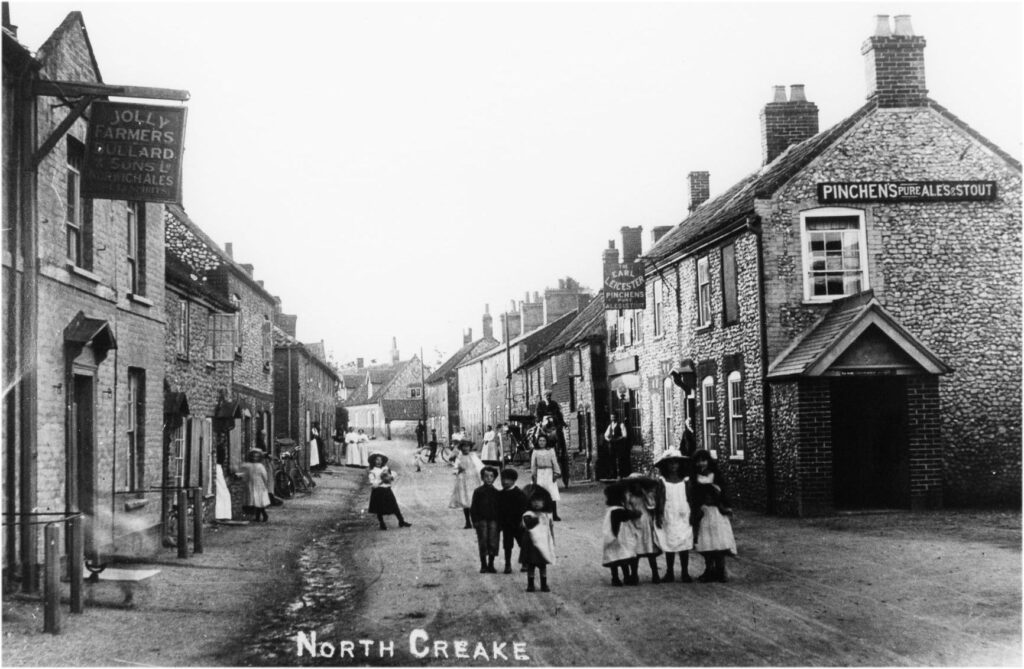Between the years 1824 and 1865, 35 cotton mills were erected in Bacup. People flocked from the agricultural districts such as Norfolk, Suffolk, and Cambridgeshire to work in Bacup. The beautiful, wooded valleys and the clear fish-filled river Irwell soon disappeared and instead of growing trees, we grew chimneys that belched out and smoked 24 hours a day. Money was made so quickly that the valley became known as ” The Golden Valley”.
The spin-off from the industrial revolution was of course a mass increase in population. The demand for labour was tremendous. The manufacturers had formed the Labour Supply Organisation, to organise the migration of labourers from the South to the mills in the North. Agents were sent to areas between Peterborough and Norwich, displaying posters which read:
Families who are desirous of moving to, and working in Lancashire cotton factories, may now embrace the opportunity, having their expenses paid thither, a good trade and good wages will be the result.
Individuals who migrated from locations like Norfolk, Suffolk, Cambridge, Carlisle, and Ireland were lured by the promises made by the manufacturer’s agent, many of which were never intended to be kept. These promises included benefits like all expenses paid, a furnished house upon arrival, steady work, and a good wage. However, the harsh reality turned out to be quite different from what was initially portrayed. Upon reaching their destination, many of these migrants were informed that they actually owed money for their journey and had inadvertently entered into lengthy contracts, lasting six or twelve months. This misrepresentation of the true conditions highlights the exploitation and deceptive practices that were prevalent during the migration process.
In Bacup, houses had been provided but very few had furniture and so the poor workers had no choice but to sleep on the earthen floor. A weaver from Norwich was taken to court for not paying back £14.00 which he had been lent for fare, furnishings, and provisions. The judge disallowed the fare but made the weaver pay 1 shilling and 6 pence.
Prosperity reigned until the year 1861 when the American Civil War stopped the supply of cotton. Most of the immigrants who had come to work here from places such as Norfolk, Suffolk and Cambridgeshire were affected and had to apply to the same manufacturers who had brought them here for poor relief. At this time the manufacturer replied, “No, you must return to your parish we can’t help you”. Asked to sign papers to be returned to their parishes, many refused, explaining they had no homes to go back to, having broken them up to come North. The manufacturer then left his position of Guardian of the Poor and entered into his other position in the community, that of the local magistrate, at which time the poor immigrant worker was brought up in front of the magistrate as a criminal and was sent to prison for seven days.
By 1864 the worst of the Cotton Famine appeared to be over and people from the various agricultural districts of Norfolk, Suffolk and Cambridgeshire began coming back to the valley to work in the mills once again. On Thursday the 19th of April 1866 over 80 people principally from Norfolk, arrived in Bacup ready to begin work in the various mills. The following week saw more hands returning from the southern counties of Norfolk, Suffolk and Cambridge and the steady influx continued at a rate of 30 – 40 per week. Despite there being a desperate need for workers some Bacupians were hesitant to pass on their weaving skills to the newcomers calling them “foreigners” or “yellow bellies”.
A report from the Bacup Rossendale News on 5th May 1866 read.“On Tuesday at one of the railway stations near Bacup a small batch of thinly clad shivering “ foreigners” alighted in the midst of a heavy snow storm, with snow-flakes falling as big as a half-crown, and driven by a cold easterly wind. They stared with astonished dismay at the high with bleak hills of Rossendale, almost covered with melting snow, and it is not to be wondered at, that the comparison they drew of the fields green with wavering spring wheat, and the hedgerows covered with luxuriant foliage which they had left behind in search of better wages, was not favourable to Rossendale”.
In response to the shortage of workers, Joshua Hoyles and Son Ltd made the decision in November 1875 to import more labour from other counties to bolster their workforce. Fifty families of farm labourers from Norfolk were brought in to work at the mills in Bacup and Sharneyford. The firm facilitated the newcomers by providing homes and houses for them to reside in. Additionally, due to the inclement weather, transportation in the form of carts was arranged to ferry them from Bacup station to their new residences and workplaces. This influx of labor from Norfolk played a crucial role in sustaining the operations of the mills owned by Joshua Hoyles during this challenging period.
